Happy New Year everyone! We’re looking forward to an exciting year ahead, starting with some of these changes from the world of digital marketing last month.
Analytics
GA4 Audiences in Google Ads
You can now create GA4 audiences directly in Google Ads, and take advantage of all of the powerful capabilities therein.
The capability we are most excited about and actively testing is the ability to add and target GA4 predictive audiences, such as “likely 7-day purchasers”. These use the machine learning capabilities of GA4, making all of the user-behavior signals collected by GA4 available for optimization in Google Ads. Right now these predictive audiences are limited to ecommerce metrics, but if you do ecommerce on your website, we recommend setting a few of these up for observation.
To use this feature:
- Go to Google Ads > Tools and settings > Audience manager, then click the blue plus icon
- Click on ‘Google Analytics’ and select your GA4 property and then select ‘Continue’ – if you run into trouble, check the prerequisites below
- This will open the GA4 audience builder.
Prerequisites for using the Audience builder in Google Ads:
- An administrative Google Ads login
- The same login should have at least Marketer permissions in GA4. You may also find that you need to grant Marketer permissions to a login that is automatically created when you link Google Ads and GA4. To check for this, go to GA4 > Admin > Property > Property access management, and look for a login with the name ‘Google Ads account [your Ads account ID] administrator’ and give it Marketer permissions. Screenshot below.
The same login should have at least Marketer permissions in GA4. You may also find that you need to grant Marketer permissions to a login that is automatically created when you link Google Ads and GA4. To check for this, go to GA4 > Admin > Property > Property access management, and look for a login with the name ‘Google Ads account [your Ads account ID] administrator’ and give it Marketer permissions.
- Google Ads and GA4 are linked and auto tagging is enabled
- Ads personalization is enabled in GA4: under Admin > Data collection & modification > Data collection > Advanced Settings to Allow for Ads Personalization, make sure that Ads personalization is enabled.
Custom groupings in Looker Studio
One of our favorite Looker Studio hacks is the ability to create calculated fields with CASE/WHEN formulas to organize dimensions into groups. This is a very useful trick, but it requires an understanding of Looker Studio’s formula scripting syntax, and can be a bit fussy if you don’t get everything just right. In December, Google released a code-free solution for doing exactly the same thing, called custom groupings. With custom groupings, you can filter for and analyze macro trends in your data.
If you are not familiar with calculated fields, they give you the ability to add your own custom dimensions and metrics to a data source. Once you’ve added it, you can use it just like any other dimension or metric when you create tables and graphs! Here are a few examples of calculated fields you can create with the new custom groupings feature:
- Organize Google Ads and Search Console keywords into categories based on the products or services you sell.
- Create your own custom content groups in Looker Studio based on the GA4 Page path dimension.
- Translate geographic dimensions (Country/Region/City) into your sales regions.
There’s really no end to what you can do with this feature. GA4, Google Ads, Search Console, Meta, LinkedIn and the many other data sources we use overwhelm us with information. Organizing all of this into the categories that matter for your business can mean the difference between data and insight.
Paid Media
Where Do Google’s Performance Max Ads Show?
Adalytics, an ad performance platform, accused Google of displaying Performance Max ads on inappropriate non-Google websites on the Search Partner Network, raising brand safety concerns. Google denied the allegations, and responded by indicating that 90% of Search Partner Network runs on Top 100 sites and apps. But they also introduced an option for Performance Max ads to opt-out of Search Partner Network, which they’ve indicated is temporary until they develop other brand safety controls.
Cox “Active Listening” Capabilities to be Leveraged for Ads
Cox Media Group sparked privacy concerns when it was reported that their new “Active Listening” capability leverages microphones in connected devices to identify interest. It is unclear if this technology is currently in place, or simply being promoted as a future-thinking technology. Cox Media Group indicated it is acting within the terms and conditions of its apps that users agree to, but many in the advertising industry indicated significant concern about this type of privacy intrusion.
Google to Implement Third-Party Cookie Test to 1% of Users Globally.
Google has indicated they’ll retire third-party cookies in the latter half of 2024, and as a step in that direction, they will be randomly selecting 1% of Chrome users and disabling this functionality starting January 1, 2024. Third-party cookies are placed by websites different than the one a user is currently browsing, and are used primarily for personalizing ads, as well as for some site functionality like logging in. This test should help websites which leverage third-party cookie technology ensure they are ready for the larger change later in the year.
Google Adds Impression Share for Local Service Ads
Local Service Ads now show impression share, useful for understanding the reach of ads and competitiveness of your campaigns. Local Service Ads are lead-focused ads for service industries, including home improvement and lawyers. They include an optional Google Screened badge and prominently feature star ratings.
LinkedIn Ad Prices Up
Ad prices reportedly are up as much as 30% on LinkedIn, likely driven by B2B advertisers’ move away from advertising on the X platform. LinkedIn reportedly saw 10% year-over-year revenue growth in 2023. Despite the price increases, many advertisers are still reporting strong ROI from LinkedIn advertising.
YouTube is Top Social App for Teens
Pew Research’s latest report on social media usage amongst teens shows that YouTube is by far the most-used social media platform, used by 93% of U.S. teens. TikTok, Snapchat, and Instagram follow at around 60%. In terms of daily usage, YouTube and TikTok are both very common, with 16-17% of teens saying they use each platform “almost constantly”.
SEO
Google Strengthens “Openness” Ranking Signal For Local Searches
Google has updated its local search algorithm to emphasize the “openness” signal for non-navigational queries as a significant ranking factor. Open businesses now should be ranked higher than closed ones in local search results. This update will impact Google Business Profile listing rankings, so businesses should ensure that their displayed hours accurately reflect their actual open hours.
Google Adds Vacation Rental Structured Data
Vacation rental partners can now use structured data markup on their website pages to qualify for a rich result on Google. While the feed method is still suitable for larger partners, the markup option is recommended for smaller partners, offering a simpler setup and maintenance.




